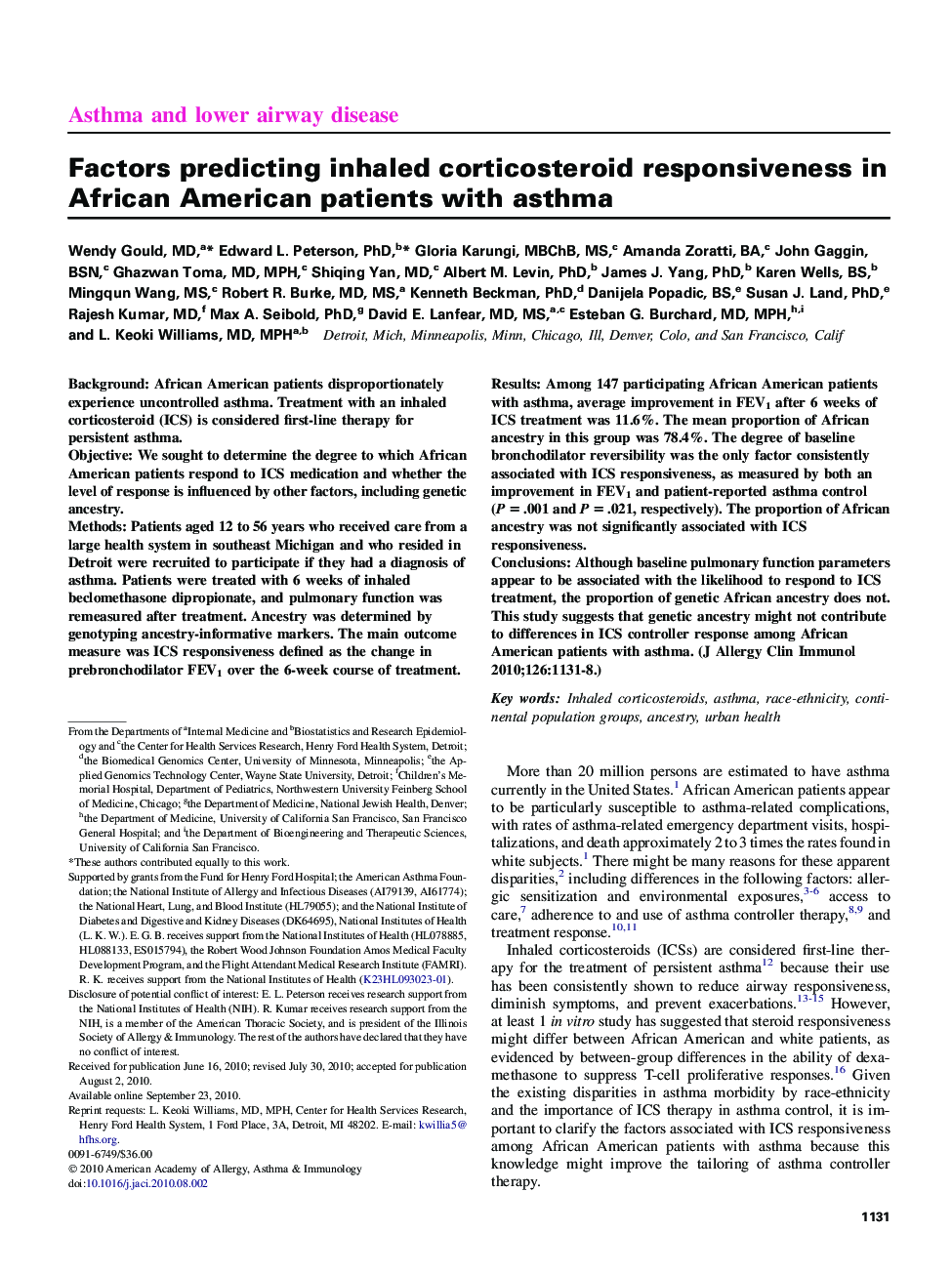| Article ID | Journal | Published Year | Pages | File Type |
|---|---|---|---|---|
| 6067418 | Journal of Allergy and Clinical Immunology | 2010 | 8 Pages |
BackgroundAfrican American patients disproportionately experience uncontrolled asthma. Treatment with an inhaled corticosteroid (ICS) is considered first-line therapy for persistent asthma.ObjectiveWe sought to determine the degree to which African American patients respond to ICS medication and whether the level of response is influenced by other factors, including genetic ancestry.MethodsPatients aged 12 to 56 years who received care from a large health system in southeast Michigan and who resided in Detroit were recruited to participate if they had a diagnosis of asthma. Patients were treated with 6 weeks of inhaled beclomethasone dipropionate, and pulmonary function was remeasured after treatment. Ancestry was determined by genotyping ancestry-informative markers. The main outcome measure was ICS responsiveness defined as the change in prebronchodilator FEV1 over the 6-week course of treatment.ResultsAmong 147 participating African American patients with asthma, average improvement in FEV1 after 6 weeks of ICS treatment was 11.6%. The mean proportion of African ancestry in this group was 78.4%. The degree of baseline bronchodilator reversibility was the only factor consistently associated with ICS responsiveness, as measured by both an improvement in FEV1 and patient-reported asthma control (PÂ = .001 and PÂ = .021, respectively). The proportion of African ancestry was not significantly associated with ICS responsiveness.ConclusionsAlthough baseline pulmonary function parameters appear to be associated with the likelihood to respond to ICS treatment, the proportion of genetic African ancestry does not. This study suggests that genetic ancestry might not contribute to differences in ICS controller response among African American patients with asthma.
